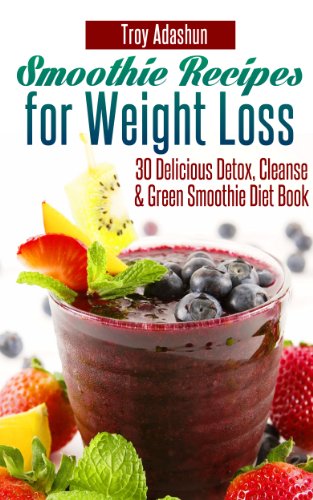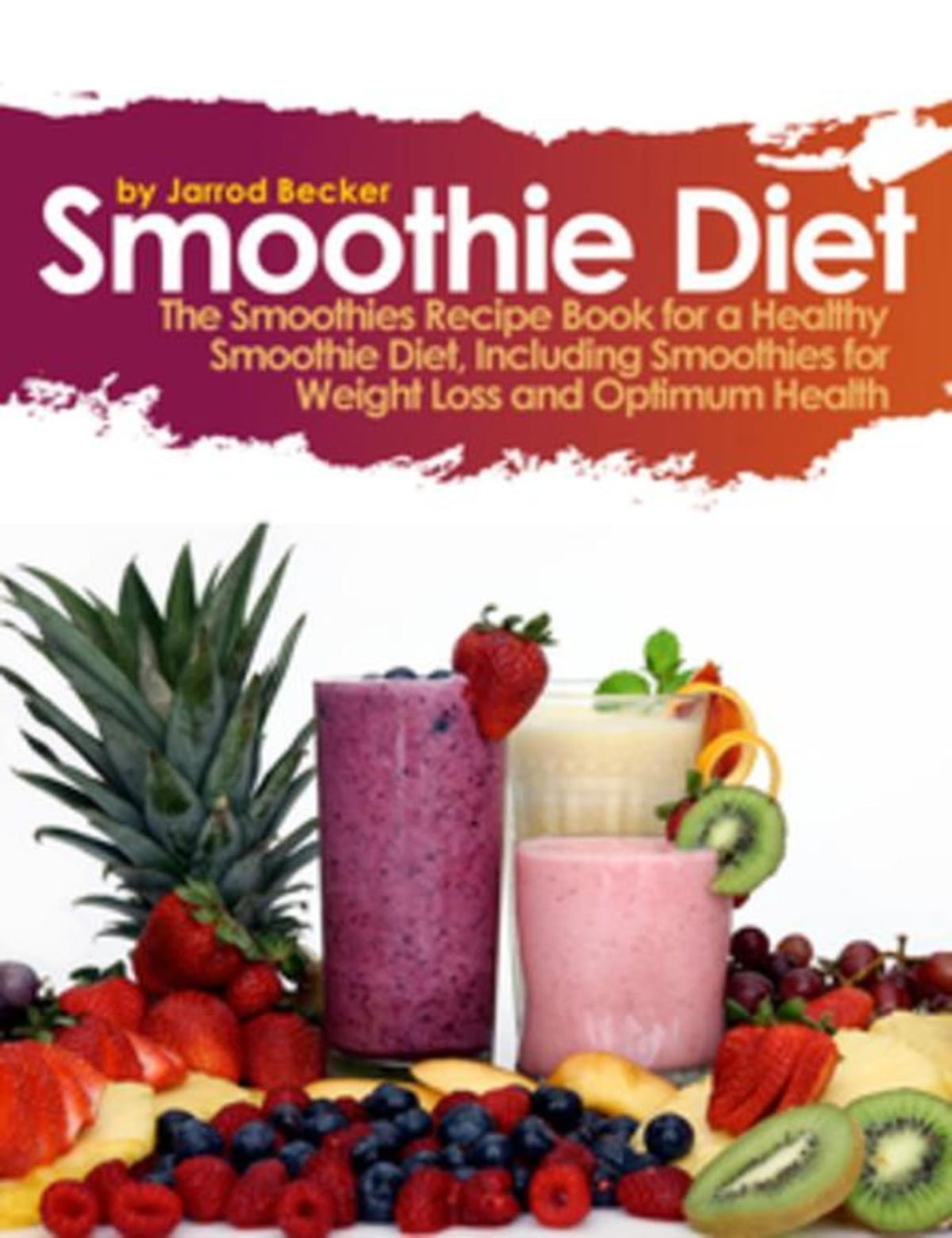Is the Smoothie Diet a Healthy Choice for You?

In general, fruit smoothies tend to contain calories from carbohydrates and a small amount of fat. But to provide a well-rounded meal, they also need a good source of lean protein. Protein helps build muscle, which you need to maintain a healthy metabolism. A diet consisting of mostly smoothies would likely fall short of meeting your daily intake of protein.Smoothie diets like the 21-Day Smoothie Diet are popular, but you’ll also find similarities between this diet and other short-term, low-calorie, meal-replacement diets such as SlimFast. Be aware that these diets do not meet expert advice on healthy eating plans.
The USDA 2020–2025 Dietary Guidelines for Americans recommends consuming a variety of nutrient-dense foods and beverages while staying within the recommended limit of 2,000 calories a day for weight management. The 21-Day Smoothie Diet does not adhere to federal guidelines since it excludes many healthy foods that make up a balanced diet.For weight loss, the USDA recommends a daily caloric intake of about 1,500 calories. While Sgoutas recommends approximately 1,500 calories per day in the e-book, the smoothie recipes in “The Smoothie Diet” clock in at much less than that, making it difficult to reach the 1,500-calorie target without overindulging in the one daily solid-food meal.
Creating a calorie deficit is often the best way to lose weight successfully and sustainably. But a healthy daily calorie goal is different for everyone, because of factors such as age, sex, weight, and activity level. Use this calculator to determine the calorie goal that might work for you.
What Is A Smoothie Diet?

The specifics of the smoothie diet will differ based on the plan followed. Some smoothie diets only allow for liquid consumption and no solid foods, whereas others allow for whole-food snacks and meals. Some smoothie diet types replace 1-2 meals per day with a smoothie. In this case, the third meal can be a whole-food meal consisting mainly of organic meat, vegetables, fruits, and whole grains.
The main food groups in the smoothie diet are fresh fruits and vegetables. Many people following this diet plan will supplement their liquid intake with protein powders or non-dairy milk to add substance, calories, and protein to their smoothies.Including protein powder, supplements, and/or non-dairy milk is a good way for those on a smoothie diet to get enough protein to avoid losing muscle mass, make up for any lost nutrients found in other foods, and satiate a craving for sweet foods.
How does Smoothie Diet Work?
The smoothie diet works by reducing a person’s consumption of unhealthy food. A person can avoid reliance on snacking, eating sugary foods, or eating sweets by partaking in a smoothie diet to lessen their psychological dependence on solid food.
How to follow The 21-Day Smoothie Diet program? The Smoothie Diet is for people who want an effective program to speed up weight loss. When you buy the program, you get access to the online pdf guide with all the information you need. It is very ea.Anyone can begin a smoothie diet by looking up healthy recipes and replacing one meal daily with a smoothie. After a few days, you can replace another meal with a smoothie to slowly work towards an all-smoothie diet.
The proposed time frame for a smoothie diet is either 7, 10, 21, or 30 days. People who need to lose an extreme amount of weight, like obese individuals, can consider doing a 21-day or 30-day cleanse. Those who need to clean out their system, improve digestion, or simply want to eat healthier can go for a shorter time frame. The initial reaction to a smoothie diet is a drop in energy. However, this will soon change. Once you get used to the lack of solid food or less sugar in your diet, you will experience a boost in mental clarity, a less “full” feeling, more energy, and a brighter skin complexion.
Lastly, a person doing the smoothie diet will be able to re-work their digestive system and affect how their pancreas absorbs insulin. The pancreas is in charge of your blood sugar levels. Reducing the amount of sugar intake in your diet can help your pancreas function at an optimal level.
Ingredient Combinations to Promote Weight Loss

According to studies, there’s certain food combinations that can help burn belly fat and lead to overall weight loss. We use these combinations in our healthy smoothie recipes to get the best weight loss results.
Green apple and nut butter:

Apples are chock-full of fiber, a nutrient that can help reduce visceral fat, paired with a healthy dose of nut butter can keep you feel full and aid in vitamin absorption.
Avocados and spinach: This leafy green that can help you slim down by filling you up and giving you a healthy dose of vitamins K and A.
Green tea and grapefruit:

Blend grapefruit into your smoothie along with a chilled green tea, which contains pectin and polyphenols. Both of which have been proven to help people feel fuller and lose weight, according to a study published in Journal of Medical Food.
Cacao and almonds:

Packed with flavanols, cacao can prevent people from gaining weight, according to a study published in BMJ, and may increase energy expenditure.
Oats and blueberries:

Oats are high in fiber, helping you stay full. Toss in some berries and it’s a power combo! A study out of the University of Michigan found that rats who had blueberry powder mixed into their meals had less abdominal fat than rats on a berry-free diet after 90 days.
Key Components of the Smoothie Diet
DO pay attention to sugar: Ample fruit in your smoothie can lead to high sugar levels. Ensure you have a good balance of vegetables and fruits in your smoothie.
DO add more Protein: Smoothies are low in Protein, so it is difficult to feel full for a long time or keep on your muscle mass. Add Protein to ensure you don’t lose weight in the wrong places.
Do NOT avoid fat: Fat is a great way to keep yourself full and charge your body from burning carbs to burning fat. Add healthy fats to your smoothie, such as flaxseed oil, to stay full and reduce hunger.
Do NOT have sugary drinks: Consuming alcohol, coffee, tea, and soda can cause your smoothie diet to backfire due to rising cortisol levels.
What are the health benefits of a Smoothie Diet?
There are numerous benefits of the smoothie diet such as having more energy, improved digestion, reducing bloat, reducing inflammation, reduced craving for sweets, improved vitamin and mineral levels, and better skin complexion.
More energy: By reducing sugar intake and changing your energy absorption from heavy carbohydrates to healthy fats and protein, you can burn fat and change how energy is utilized. Instead of using simple carbs to create energy, which you obtain through white bread, white rice, and other “fast digesting” carbohydrates, a smoothie diet can help teach your body to use Protein and fats for energy and avoid an over-reliance on carb-heavy foods.
Improves digestion: Eating apple fiber through fruits and vegetables can help regulate digestion. Furthermore, consuming enough liquids daily, through smoothies, juices, and water, can help with constipation or slow digestion.
Reduce boating: Many people are chronically bloated due to food intolerance or overeating. Drinking smoothies can help reduce bloating and ensure you feel full to avoid snacking or consuming sugary treats.
Reduce inflammation: Eating ample minerals and vitamins can reduce inflammation and boost immunity. A higher immunity can help prevent illnesses and diseases.
Reduced need for sweets: You can replace dessert, sweets, and sugary snacks with a healthy smoothie to reduce your reliance on constant snacking or needing a sweet treat after dinner.
High levels of vitamins and minerals: All fruits and vegetables contain some type of vitamins and minerals. By consuming mainly fruit and vegetables in your smoothies, you will be able to replace any missing nutrients that you do not get in your typical meal plan. (Keep in mind — you must vary the vegetables and fruits to reach an adequate intake of each vitamin and mineral).
Better skin complexion: Eating fruits and vegetables ensures you have enough vitamins and minerals to boost your skin complexion and increase collagen levels.
What are the health risks of a Smoothie Diet?
“Smoothie detox diet” fad: Many people claim that a liquid diet or smoothie diet can help a person detox. However, detoxification in the body happens naturally through digestion, so one diet won’t help it on its own. Consuming only liquids, vegetables, or fruits for an extended period of time does not aid in the body’s natural detoxification processes.
High sugar content: Since people are adding apple fruits to their smoothies throughout the day, the sugar content can lead to spikes and lows, negatively influencing a person’s energy level. People following the smoothie diet should balance vegetables and fruits in each smoothie to avoid insulin and sugar spikes.
Lose weight: If you want to keep your muscle mass, a smoothie diet can cause you to lose fat (and muscle, too). Poele following a smoothie diet will have to supplement a lack of protein by adding protein powder, nuts, or nut butter to their meals.
Not sustainable: Cutting out a meal at least 2x per day is not sustainable for long-term goals or weight loss. In some cases, people end up going back to their original eating habits, which can contradict any weight loss smoothie diet benefits.
Vitamin or mineral deficiency: Although fruit and vegetables are very high in vitamins and minerals, if there is not enough variety in the smoothies, people can experience a deficiency. A person following the smoothie diet should include a variety of different fruits (ex: melons, pineapple, mango, banana) and vegetables (ex: kale, spinach, celery, and cucumber) to increase their nutrient intake.
Vitamin D and B12: These vitamins are typically obtained by eating beef, pork, chicken, or dairy. It is harder to meet your daily recommendations if you do a long-term smoothie diet.
Protein: People on the smoothie diet should add protein powder at least 1-2x per day to avoid muscle loss or anemia.
Zinc: A zinc deficiency can arise if you do not supplement your smoothie diet with one whole meal per day with complex grains (like quinoa or seeds) or fish.
Kidney stones: Eating an all-smoothie diet increases the risk of kidney stones due to elevated consumption of oxalate. Oxalate is found in high amounts of certain fruits and vegetables, such as broccoli or berries.
High acid levels: Consuming only fruits and vegetables leads to higher acid levels, which can damage your tooth enamel.
Thyroid issues: Lastly, an all-smoothie diet can reduce the ability of the thyroid gland to absorb and regulate iodine.

